For over two millennia, Sephardic communities have lived the Torah with depth, beauty, and brilliance. From Fez to Aleppo, Salonica to Cairo, the Torah shaped everyday life — not only studied, but sung, debated, and cherished. Giants like Maimonides, Rav Yosef Karo, the Ben Ish Hai, and Hakham Ovadia Yosef carried this legacy forward with clarity and vision.
Explore weekly Torah portions through a Sephardic lens — with rich commentary, halachic insights, traditional melodies, Spanish-language teachings, and timeless reflections that celebrate Sephardic Torah heritage.
Shabbat Times
Use the tabs below to explore the Torah by book or browse the complete list of weekly parashot in the default tab. Click any parasha to learn more.
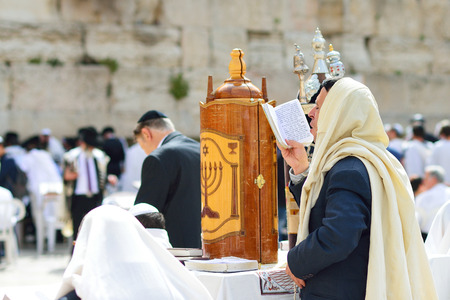
Uncover the profound wisdom of the Torah, constructed of five books—Genesis, Exodus, Leviticus, Numbers, and Deuteronomy—each comprising a collection of parashot, or weekly portions. These parashot delve into divine teachings, moral principles, historical accounts, and timeless guidance, forming a comprehensive framework for Jewish life. Through its compilation of narratives, laws, and poetry, the Torah inspires generations to seek wisdom, embrace spirituality, and uphold the values of justice, compassion, and holiness. Delve deeper into this profound text by selecting a Parasha from the full list here or explore specific themes and insights by selecting a tab below. Discover a treasury of wisdom that resonates across generations and illuminates the path of a meaningful Jewish journey.
| Genesis | Exodus | Leviticus | Numbers | Deuteronomy |
|---|---|---|---|---|
| Bereshit (1:1-6:8) |
Shemot (1:1-6:1) |
Vayikra (1:1-5:26) |
Bemidbar (1:1-4:20) |
Devarim (1:1-3:22) |
| Noach (6:9-11:32) |
Va'era (6:2-9:35) |
Tzav (6:1-8:36) |
Naso (4:21-7:89) |
Va'etchanan (3:23-7:11) |
| Lech Lecha (12:1-17:27) |
Bo (10:1-13:16) |
Shemini (9:1-11:47) |
Behaalotecha (8:1-12:16) |
Ekev (7:12-11:25) |
| Vayera (18:1-22:24) |
Beshalach (13:17-17:16) |
Tazria (12:1-13:59) |
Shelach (13:1-15:41) |
Re'eh (11:26-16:17) |
| Chaye Sarah (23:1-25:18) |
Yitro (18:1-20:23) |
Metzora (14:1-15:33) |
Korach (16:1-18:32) |
Shoftim (16:18-21:9) |
| Toledot (25:19-28:9) |
Mishpatim (21:1-24:18) |
Achare Mot (16:1-18:30) |
Chukat (19:1-22:1) |
Ki Tetze (21:10-25:19) |
| Vayetze (28:10-32:3) |
Teruma (25:1-27:19) |
Kedoshim (19:1-20:27) |
Balak (22:2-25:9) |
Ki Tavo (26:1-29:8) |
| Vayishlach (32:4-36:43) |
Tetzave (27:20-30:10) |
Emor (21:1-24:23) |
Pinchas (25:10-30:1) |
Nitzavim (29:9-30:20) |
| Vayeshev (37:1-40:23) |
Ki Tisa (30:11-34:35) |
Behar (25:1-26:2) |
Matot (30:2-32:42) |
Vayelech (31:1-30) |
| Miketz (41:1-44:17) | Vayakhel (35:1-38:20) |
Bechukotai (26:3-27:34) |
Masei (33:1-36:13) |
Haazinu (32:1-52) |
| Vayigash (44:18-47:27) |
Pekude (38:21-40:38) |
V'Zot HaBeracha (33:1-34:12) |
||
| Vayechi (47:28-50:26) |
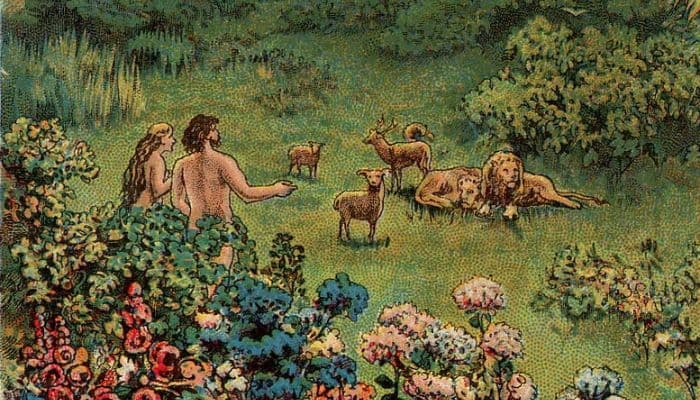
Genesis (“Bereshit”) is the first book of the Torah, Judaism’s foundational text, and the only one consisting almost entirely of stories, with just three explicit laws. It tells of the origins of mankind and the Israelites, with stories on creation, Adam and Eve, Noah’s ark, the patriarchs and matriarchs – Abraham and Sarah, Isaac and Rebecca, Jacob, Leah and Rachel – and Joseph and his brothers. Its narratives depict figures as they encounter God, face wandering and exile, and grapple with conflict in family relationships.
| Parasha | Summary |
|---|---|
|
Bereshit (1:1-6:8) |
Excerpt: In the beginning, God created the heavens and the earth...
Highlights:
|
|
Noach (6:9-11:32) |
Excerpt: These are the generations of Noah...
Highlights:
|
|
Lech Lecha (12:1-17:27) |
Excerpt: Now the Lord said to Abram, "Go from your country and your kindred and your father's house..."
Highlights:
|
|
Vayera (18:1-22:24) |
Excerpt: And the Lord appeared to him by the oaks of Mamre, as he sat at the door of his tent in the heat of the day...
Highlights:
|
|
Chaye Sarah (23:1-25:18) |
Excerpt: Sarah lived 127 years; these were the years of the life of Sarah...
Highlights:
|
|
Toledot (25:19-28:9) |
Excerpt: These are the generations of Isaac, Abraham's son...
Highlights:
|
|
Vayetze (28:10-32:3) |
Excerpt: Jacob left Beersheba and went toward Haran...
Highlights:
|
|
Vayishlach (32:4-36:43) |
Excerpt: Jacob sent messengers before him to Esau his brother...
Highlights:
|
|
Vayeshev (37:1-40:23) |
Excerpt: Jacob settled in the land of his father's sojournings, in the land of Canaan...
Highlights:
|
|
Miketz (41:1-44:17) |
Excerpt: At the end of two full years, Pharaoh had a dream...
Highlights:
|
|
Vayigash (44:18-47:27) |
Excerpt: Then Judah went up to him and said...
Highlights:
|
|
Vayechi (47:28-50:26) |
Excerpt: Jacob lived in the land of Egypt seventeen years...
Highlights:
|
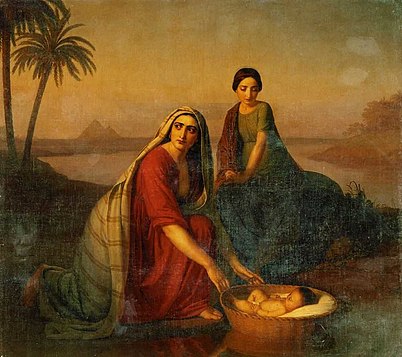
Exodus (“Shemot”) is the second book of the Torah, Judaism’s foundational text. It describes the Israelites’ enslavement in Egypt and their miraculous redemption through ten plagues and the splitting of the Red Sea. Under the leadership of Moses, they begin their travels in the desert, where they experience God’s revelation and receive the Ten Commandments at Mount Sinai, and build the Mishkan (Tabernacle). Interspersed throughout the book are more than 100 commandments.
| Parasha | Summary |
|---|---|
|
Shemot (1:1-6:1) |
Excerpt: These are the names of the sons of Israel who came to Egypt with Jacob...
Highlights:
|
|
Va'era (6:2-9:35) |
Excerpt: God spoke to Moses and said to him, "I am the Lord. I appeared to Abraham...
Highlights:
|
|
Bo (10:1-13:16) |
Excerpt: Then the Lord said to Moses, "Go to Pharaoh, for I have hardened his heart...
Highlights:
|
|
Beshalach (13:17-17:16) |
Excerpt: And it came to pass when Pharaoh let the people go, that God led them...
Highlights:
|
|
Yitro (18:1-20:23) |
Excerpt: Now Jethro, the priest of Midian and father-in-law of Moses, heard of everything...
Highlights:
|
|
Mishpatim (21:1-24:18) |
Excerpt: These are the laws you are to set before them...
Highlights:
|
|
Teruma (25:1-27:19) |
Excerpt: The Lord said to Moses, "Tell the Israelites to bring me an offering...
Highlights:
|
|
Tetzave (27:20-30:10) |
Excerpt: "Command the Israelites to bring you clear oil of pressed olives...
Highlights:
|
|
Ki Tisa (30:11-34:35) |
Excerpt: Then the Lord said to Moses, "When you take a census...
Highlights:
|
|
Vayakhel (35:1-38:20) |
Excerpt: Moses assembled the whole Israelite community and said to them...
Highlights:
|
|
Pekude (38:21-40:38) |
Excerpt: These are the accounts of the Tabernacle...
Highlights:
|
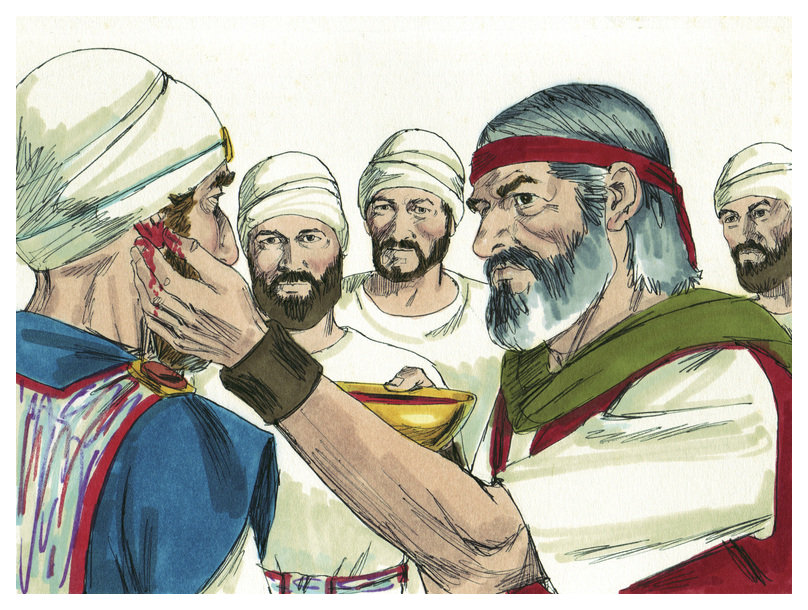
Leviticus (“Vayikra”) is the third book of the Torah. It primarily delineates the details of sacrificial worship in the Mishkan (Tabernacle), a temporary and portable sanctuary built to serve God in the desert. It also discusses impurity and purification, Yom Kippur, the festivals, forbidden relationships, dietary laws, and various ethical and agricultural laws. Though its topics are diverse, the book is unified by the theme of holiness in people, time, and space.
| Parasha | Summary |
|---|---|
|
Vayikra (1:1-5:26) |
Excerpt: The Lord called to Moses and spoke to him from the tent of meeting...
Highlights:
|
|
Tzav (6:1-8:36) |
Excerpt: The Lord said to Moses, "Give Aaron and his sons this command...
Highlights:
|
|
Shemini (9:1–11:47) |
Excerpt: On the eighth day Moses summoned Aaron and his sons and the elders...
Highlights:
|
|
Tazria (12:1-13:59) |
Excerpt: The Lord said to Moses, "Say to the Israelites: 'A woman who...
Highlights:
|
|
Metzora (14:1–15:33) |
Excerpt: The Lord said to Moses and Aaron, "When anyone has a swelling...
Highlights:
|
|
Achare Mot (16:1–18:30) |
Excerpt: The Lord spoke to Moses after the death of Aaron's two sons...
Highlights:
|
|
Kedoshim (19:1–20:27) |
Excerpt: The Lord said to Moses, "Speak to the entire assembly of...
Highlights:
|
|
Emor (21:1–24:23) |
Excerpt: The Lord said to Moses, "Speak to the priests, the sons...
Highlights:
|
|
Behar (25:1-26:2) |
Excerpt: The Lord said to Moses on Mount Sinai, "Speak to the...
Highlights:
|
|
Bechukotai (26:3-27:34) |
Excerpt: If you follow my decrees and are careful to obey...
Highlights:
|
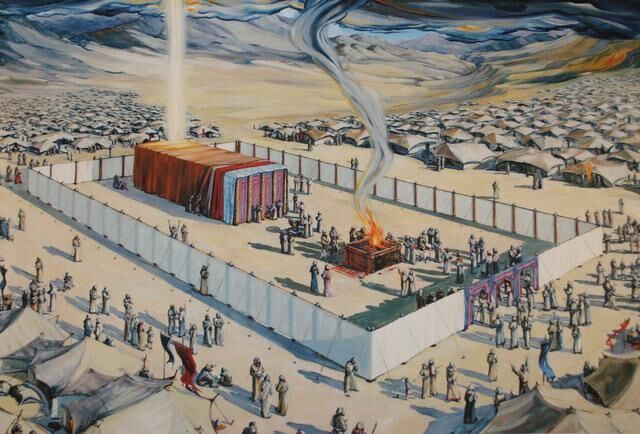
Numbers (“Bemidbar”) is the fourth book of the Torah, Judaism’s foundational text. It describes events from 40 years of the Israelites’ wanderings in the desert, beginning with a census and preparations for entering Israel. The book continues to detail a series of complaints, sins, punishments, and an attempted rebellion. Commandments are interspersed throughout, and the book ends by listing places that the Israelites traveled and delineating Israel’s boundaries.
| Parasha | Summary |
|---|---|
|
Bemidbar (1:1–4:20) |
Excerpt: The Lord spoke to Moses in the Tent of Meeting...
Highlights:
|
|
Naso (4:21–7:89) |
Excerpt: The Lord said to Moses, "Take a census of the...
Highlights:
|
|
Behaalotecha (8:1–12:16) |
Excerpt: The Lord said to Moses, "Speak to Aaron and say...
Highlights:
|
|
Shelach (13:1–15:41) |
Excerpt: The Lord said to Moses, "Send some men to explore...
Highlights:
|
|
Korach
(16:1–18:32) |
Excerpt: Korah son of Izhar, the son of Kohath, the son...
Highlights:
|
|
Chukat (19:1–22:1) |
Excerpt: The Lord said to Moses and Aaron, "This is a...
Highlights:
|
|
Balak (22:2–25:9) |
Excerpt: Balak son of Zippor saw all that Israel had...
Highlights:
|
|
Pinchas (25:10–30:1) |
Excerpt: The Lord said to Moses, "Phinehas son of Eleazar...
Highlights:
|
|
Matot (30:2–32:42) |
Excerpt: Moses said to the heads of the tribes of...
Highlights:
|
|
Masei (33:1–36:13) |
Excerpt: These are the stages in the journey of the...
Highlights:
|
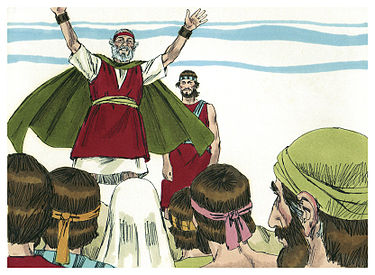
Deuteronomy (“Devarim”) is the fifth and last book of the Torah, primarily consisting of Moses’ final speeches ahead of his death. He reminds the Israelites of seminal events that happened in the desert, like the sin of the spies, the giving of the Torah, and the sin of the Golden Calf. He also reviews old laws, introduces new laws to follow as the Israelites enter Israel, and emphasizes the importance of faithfulness to God.
| Parasha | Summary |
|---|---|
|
Devarim (1:1–3:22) |
Excerpt: These are the words that Moses spoke to all...
Highlights:
|
|
Va'etchanan (3:23–7:11) |
Excerpt: I pleaded with the Lord at that time, saying,...
Highlights:
|
|
Ekev (7:12–11:25) |
Excerpt: If you pay attention to these laws and are...
Highlights:
|
|
Re'eh (11:26–16:17) |
Excerpt: See, I am setting before you today a...
Highlights:
|
|
Shoftim (16:18–21:9) |
Excerpt: Appoint judges and officials for each of your...
Highlights:
|
|
Ki Tetze (21:10–25:19) |
Excerpt: When you go to war against your enemies...
Highlights:
|
|
Ki Tavo (26:1-29:8) |
Excerpt: When you have entered the land the Lord...
Highlights:
|
|
Nitzavim (29:9-30:20) |
Excerpt: You are standing here in order to enter...
Highlights:
|
|
Vayelech (31:1-30) |
Excerpt: Then Moses went out and spoke these words...
Highlights:
|
|
Haazinu (32:1-52) |
Excerpt: Give ear, O heavens, and I will speak;...
Highlights:
|
|
V'Zot HaBeracha (33:1-34:12) |
Excerpt: This is the blessing with which Moses...
Highlights:
|
Use the tabs below to explore the Torah by book or browse the complete list of weekly parashot in the default tab. Click any parasha to learn more.
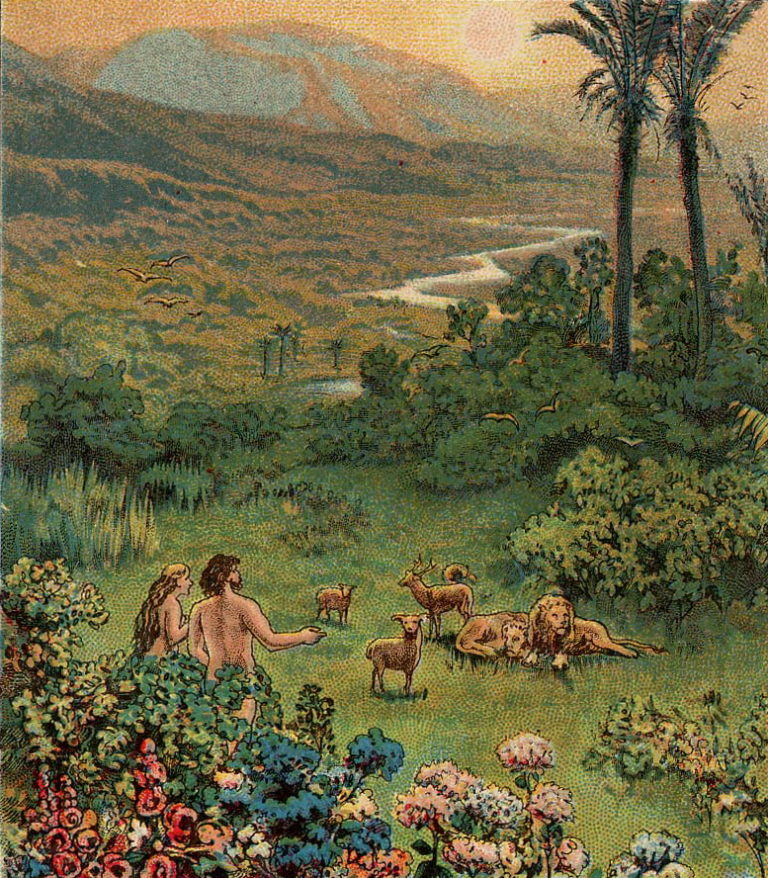
God creates the world in six days and creates rest on the seventh. Adam and Eve are the first spiritually attuned people and eat from the forbidden tree of knowledge. They are kicked out of the Garden of Eden and forced to work the land. Their son Cain kills their other son Abel.
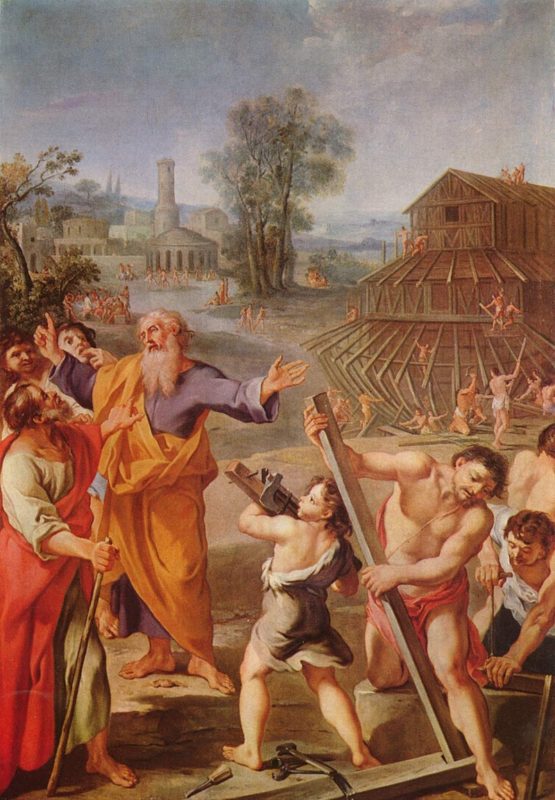
Ten generations have passed since Adam and Eve. God tells Noah that he plans to destroy the corrupted world. Noah builds an arc and takes his extended family, and pairs of every animal aboard. When the flooded land dries, God makes a promise to not destroy the world by water again. The Tower of Babel is constructed and God causes the builders to all speak different languages.
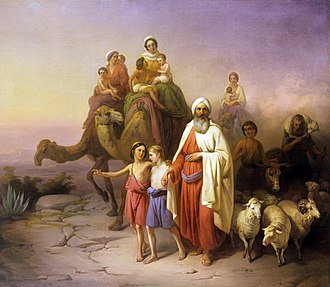
Ten generations have passed since Noah. God tells Abram (later Abraham) that he will be chosen to lead a mighty nation. He leaves behind his home to travel to Canaan. Abraham encounters Melchizedek, a righteous king and priest in the land, who blesses him and God.
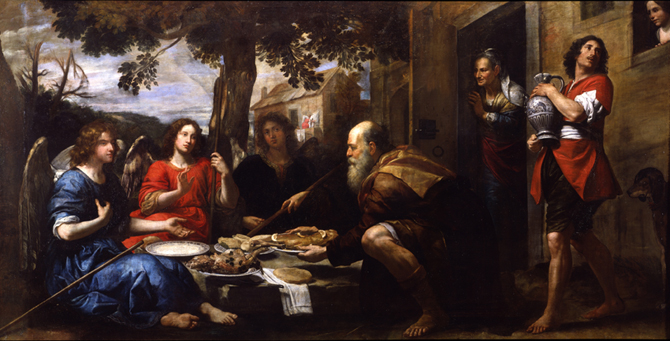
Abraham and his wife Sarah generously receive three strangers from the desert. One of the strangers tells Sarah that despite being barren, she will have a child by next year. Abraham barters with God to save the people of Sodom and Gomorrah from destruction. Lot receives strangers at the gates of Sodom and protects them from the citizens by offering his own daughters to the unruly mob. The cities are destroyed. Sarah’s son Isaac is born. Hagar and her son Ishmael are forced out. Abraham is tested in his willingness to sacrifice his son Isaac.
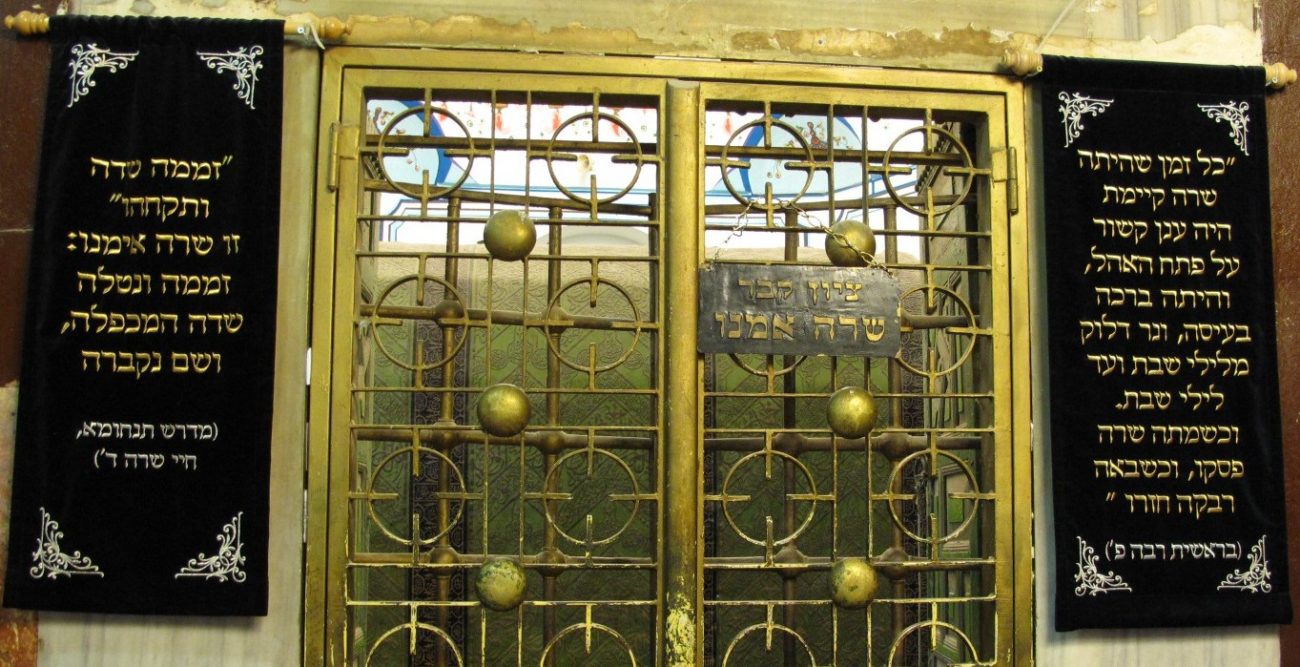
Abraham buries his wife Sarah in Machpelah. Abraham’s servant is tasked with finding a wife for Isaac. He encounters Rebecca and chooses her because she displayed hospitality and kindness towards him and his animals.
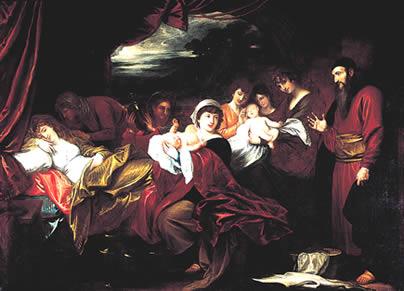
Rebecca gives birth to the twins Jacob, the studious son, and Esav, the fierce hunter. Esav gives his birthright to Jacob who tricks his now-blind father Isaac into giving him the firstborn blessing. Esav threatens to kill Jacob so he flees his home.
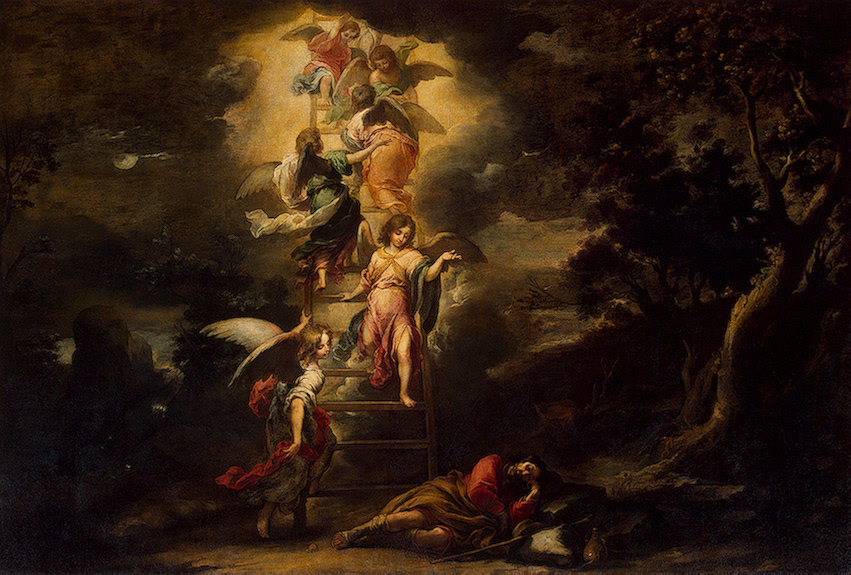
Jacob dreams of a ladder with angels ascending and descending it. He lives with and works for Laban in exchange for being able to marry Laban’s daughter Rachel. At the wedding, he is tricked into marrying Leah and made to work another 7 years to marry Rachel as well. After his success with herding, he begins his journey back to Canaan.
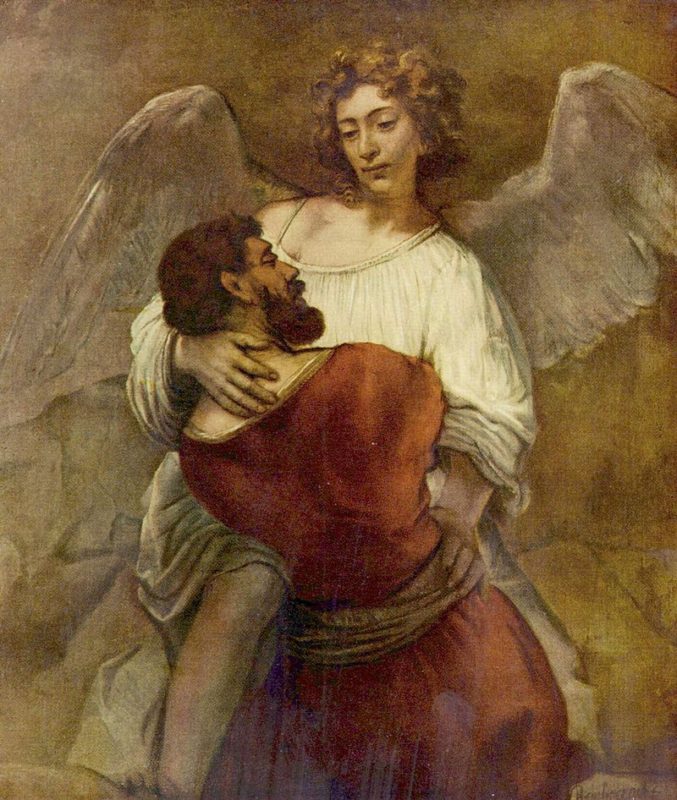
Jacob dreams of wrestling with a holy figure who changes his name to Israel. Israel and Esav have a happy reunion and part ways. One of Jacob’s children, Dinah, is taken and Jacob’s sons slaughter the perpetrators. Rachel dies while giving birth.
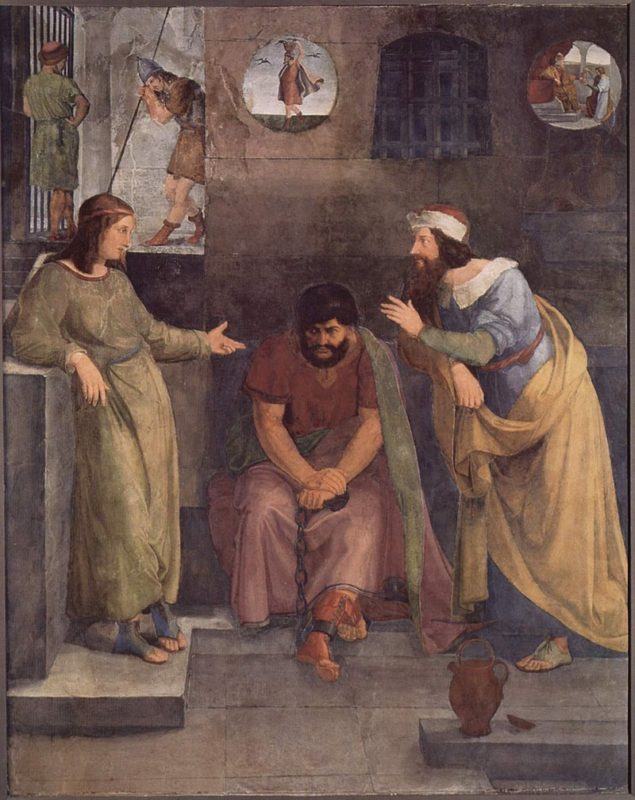
Joseph, the firstborn of Rachel, has imaginative dreams of his brothers and father revolving around him. His brothers sell him to traveling slavers who sell him to Egypt. Joseph becomes trusted for his knowledge and ability to interpret dreams. When falsely accused of a crime and thrown into prison, he interprets the dreams of two of Pharaoh’s officials.
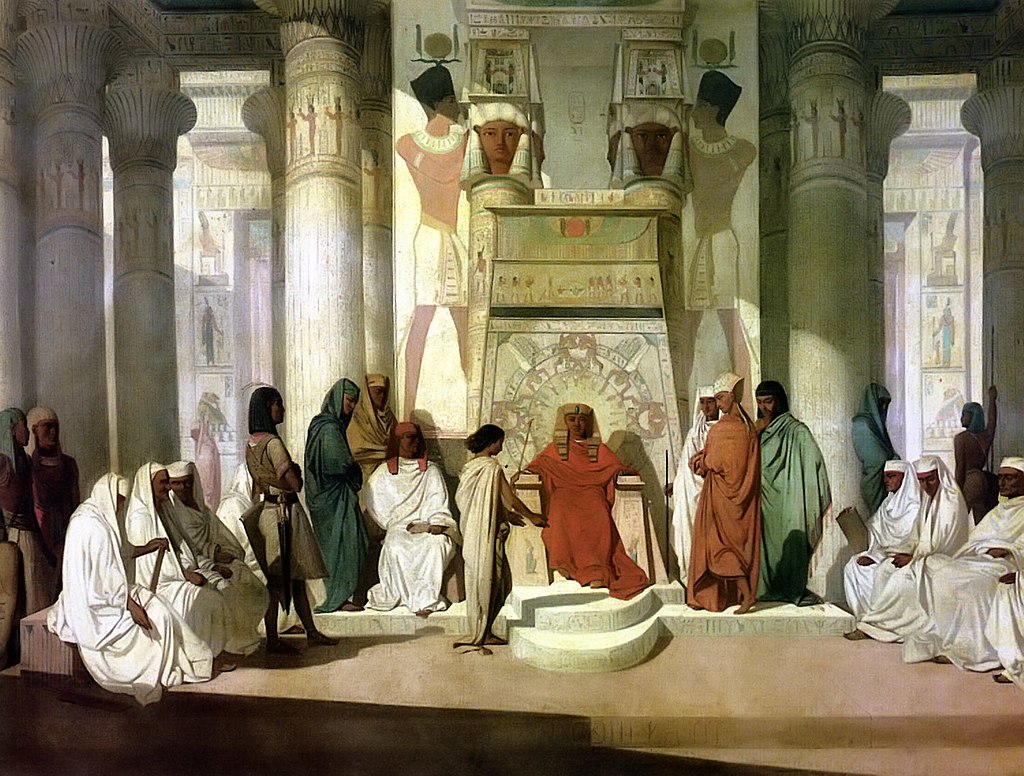
Joseph is released from prison when one of the officials tells Pharaoh of his abilities. He interprets the dreams of Pharaoh and tells him that there will be 7 years of abundance followed by 7 of famine. He ascends to Viceroy of Egypt to oversee preparations. The widespread famine forces Joseph’s brothers to come to Egypt to beg for food. Joseph recognizes them but disguises himself and frames them for a crime, forcing Benjamin, his younger brother, to be detained until his dad, Jacob, arrives.
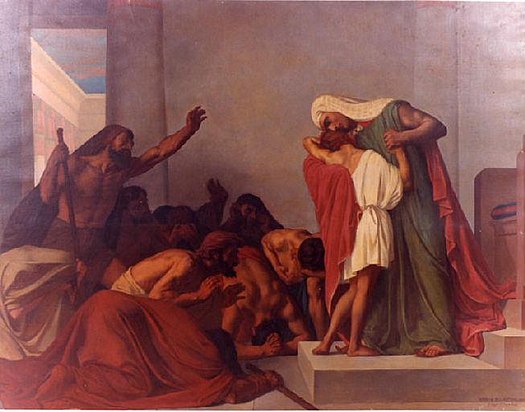
Jacob and his sons return to Egypt where Joseph reveals himself and reunites with his father who thought he was dead.
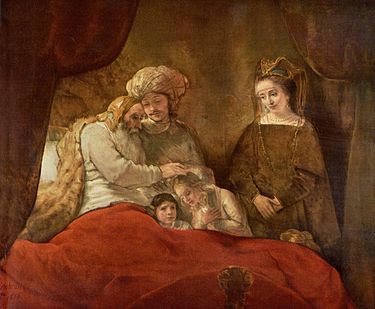
Jacob blesses his sons and Joseph’s sons, Ephraim and Menashe. Joseph makes his family promise to return him to Canaan when he dies. The children of Jacob and their families are settled in a fertile area in Egypt.

A new Pharaoh, worried about the growing Israelite population, ascends to the throne. His order to kill Jewish males results in baby Moses being cast into the Nile. He is rescued by Pharaoh’s daughter and raised in the Court. He is forced to flee Egypt after killing one of the taskmaster and encounters the burning bush where he speaks to God.
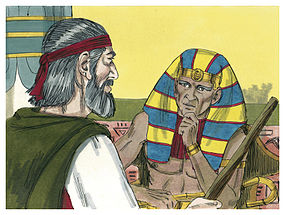
God tells Moses to go to Pharaoh and demand the freedom of the Israelites. He and his brother, Aaron, go to Pharaoh and turn their staff into a snake as a sign of God. Pharaoh refuses their demand and God sends forth the first plague, turning the water to blood. This begins the series of the first seven plagues in which God sends it, Pharaoh promises to free the Jews, God removes the plague, and Pharaoh goes back on his word.
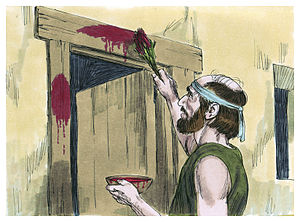
God sends the last three plagues into Egypt: a swarm of locusts, an all-encompassing darkness, and the death of the firstborns in homes that have not been marked. The last plague causes chaos in Egypt and the Israelites use the cover of night and the confusion to gather resources and flee.
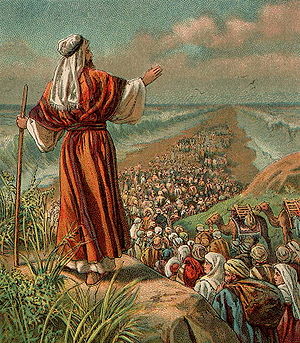
Pharaoh and his army chase after the escaped Israelites and trap them between the Sea of Reeds. Moses parts the sea and the Jews run through, singing praises to God. The waters close on the Egyptians, drowning the pursuing army. The evil nation of Amalek ambushes the Jews and God fends them off.
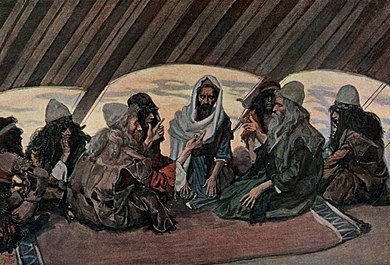
Yitro, a priest and father-in-law of Moses, suggests that Moses delegate authority to judges and leaders in the tribes instead of dealing with every issue and demand himself. Moses ascends Mount Sinai where he receives the Ten Declarations from God and delivers them to the entire Jewish nation.
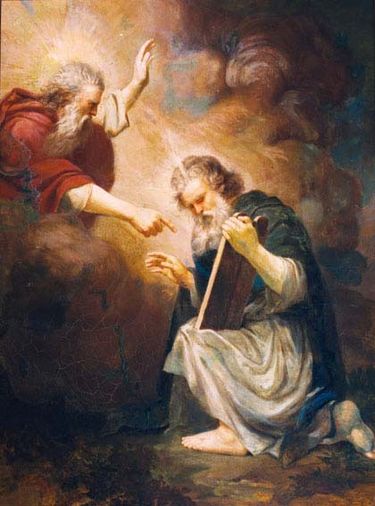
The Jews vow to adhere to all the Declarations and laws. Moses returns to the Mountain where the laws are etched into tablets.
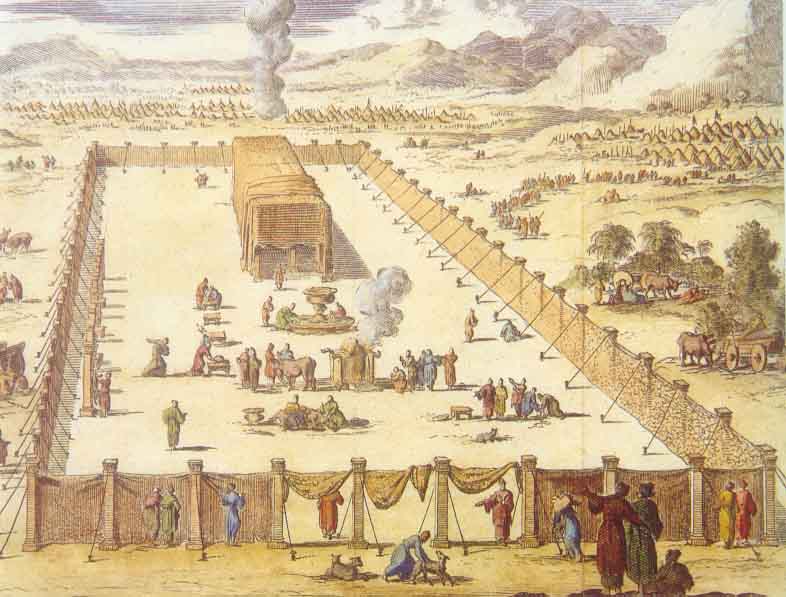
God tells Moses all the laws of the Mishkan that is to be built. He explains the Ark of the Covenant and the details of the building instructions.
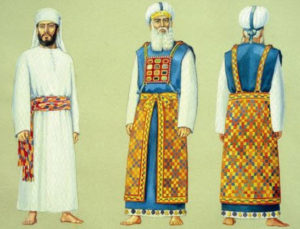
God tells Moses about constructing the Menorah. He also explains the Kohen Gadol and his breastplate and clothing. He explains the priestly duties and how they will be consecrated.
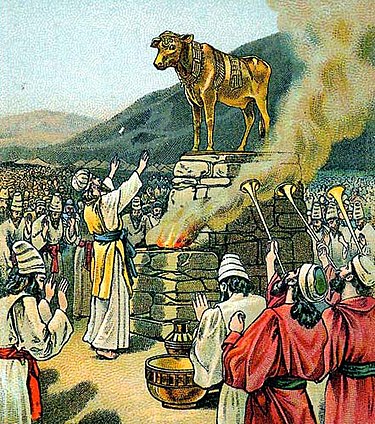
Bezazel is named the Architect of the Mishkan and tasked with overseeing its construction and preparations. Moses returns from the Mountain and sees the Jews worshipping a golden calf they had built in his absence. Moses smashes the divine tablets in anger and returns to the Mountain to bargain for the fate of the Jews and get a new set of tablets.
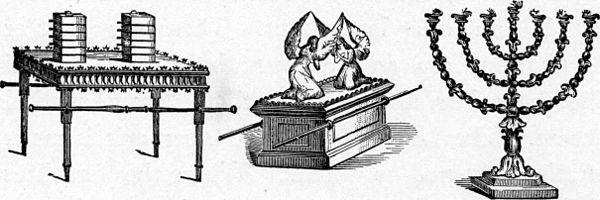
All the Israelites give generous gifts and their personal belongings towards the building of the Mishkan. The gold from the calf is used for holy purposes. The donations are so numerous that Moses tells the Jews they need to stop giving. The Mishkan furnishings and the Menorah are assembled.
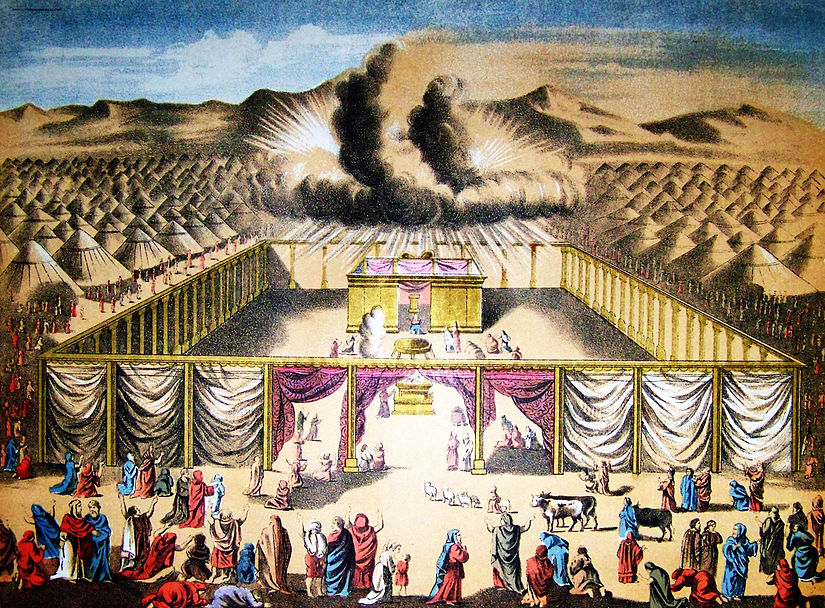
The Mishkan is completed. Moses blesses the Jewish people and finishes the set-up of the Mishkan. God descends and fills the Mishkan with His Presence.
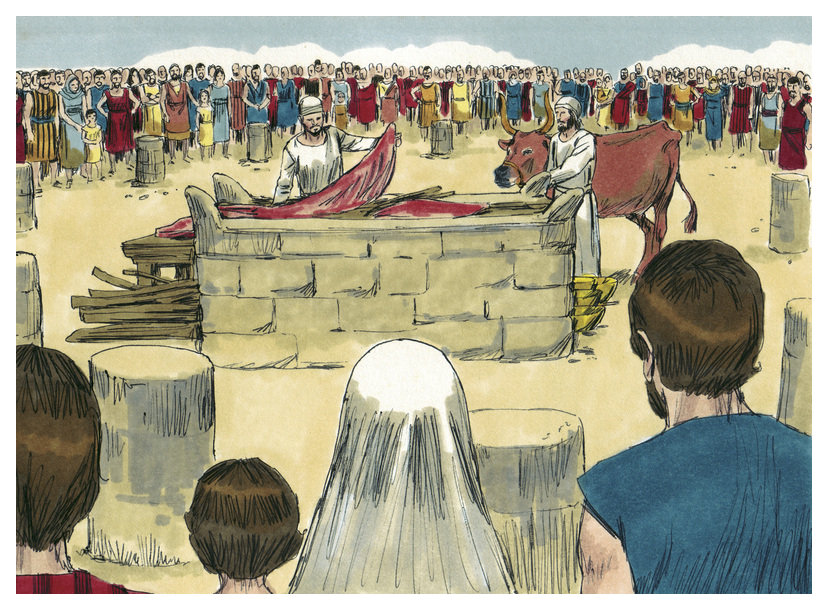
God tells Moses the different types of sacrifices that are to be offered. He goes over the burnt offerings, the meal offerings, the peace offerings, the sin offerings, and the guilt offerings. There is also instruction of alternative offerings for those with insufficient means.
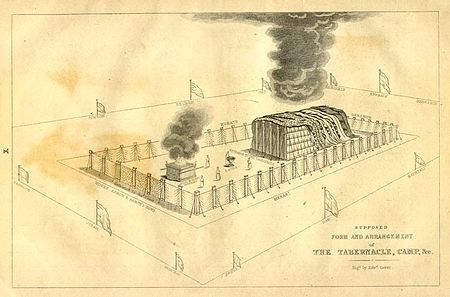
God tells Moses that the Kohanim are to ensure the fire is constantly burning and there is a constant cycle of offerings in the Mishkan. Aaron and his sons, the Kohanim, are consecrated and purified before beginning service.
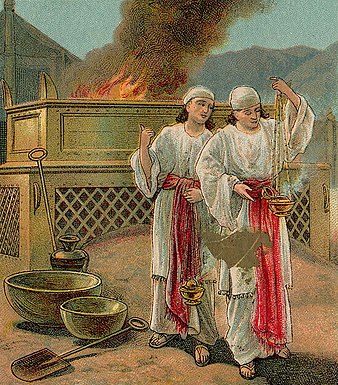
Nadav and Avihu, Aaron’s two oldest sons, bring a forbidden offering to the Mishkan and die as a result. The laws of kashrut, kosher and non-kosher animals as well as the proper, painless slaughter are described to the Jewish people.
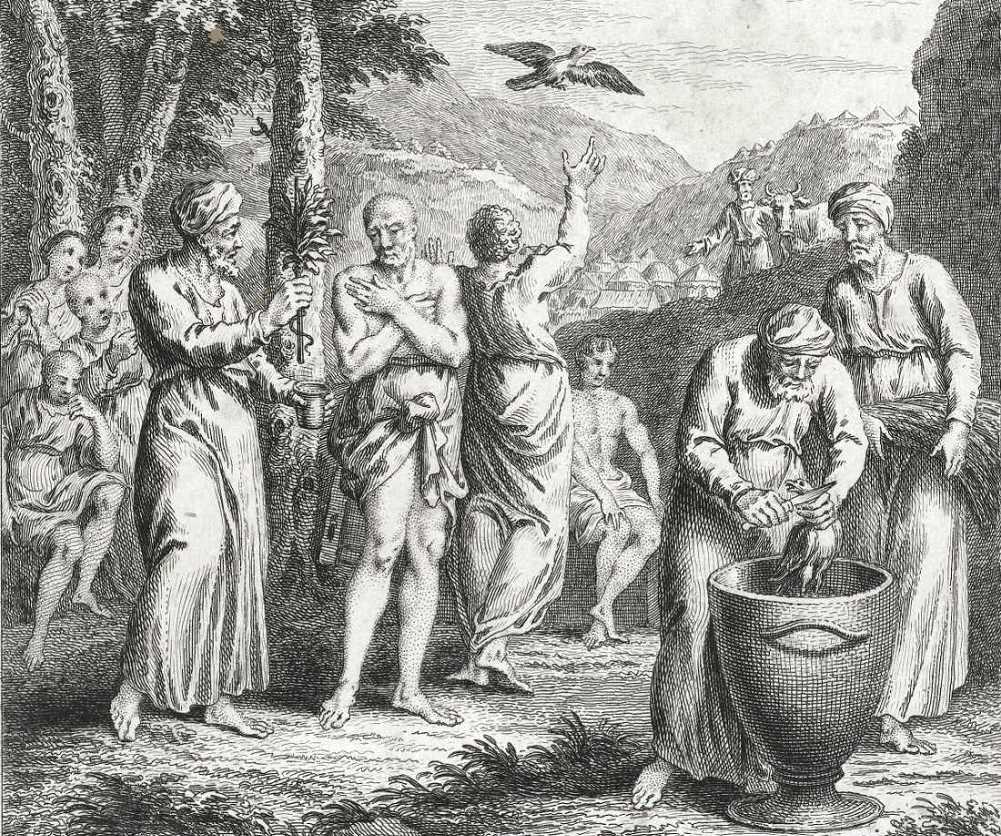
God tells Moses the laws of purity in a physical sense. The different conditions for when to quarantine or purify oneself are listed. The signs of a tzarat affliction are explained. The time of different isolation periods is explained.
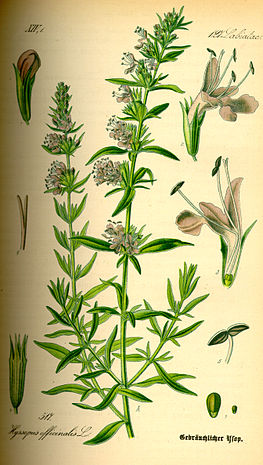
God tells Moses more laws of purity and how to become sanctified again. He also explains how these laws will function in the homes they will build in the land of Israel. The lack of cleanliness of bodily emissions is explained.
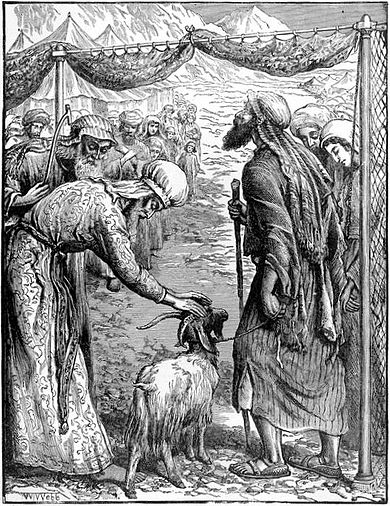
The Day of Atonement, later Yom Kippur, is discussed in detail as well as the sin offering. God also explains animal slaughter as well as forbidden relations and sexual situations.
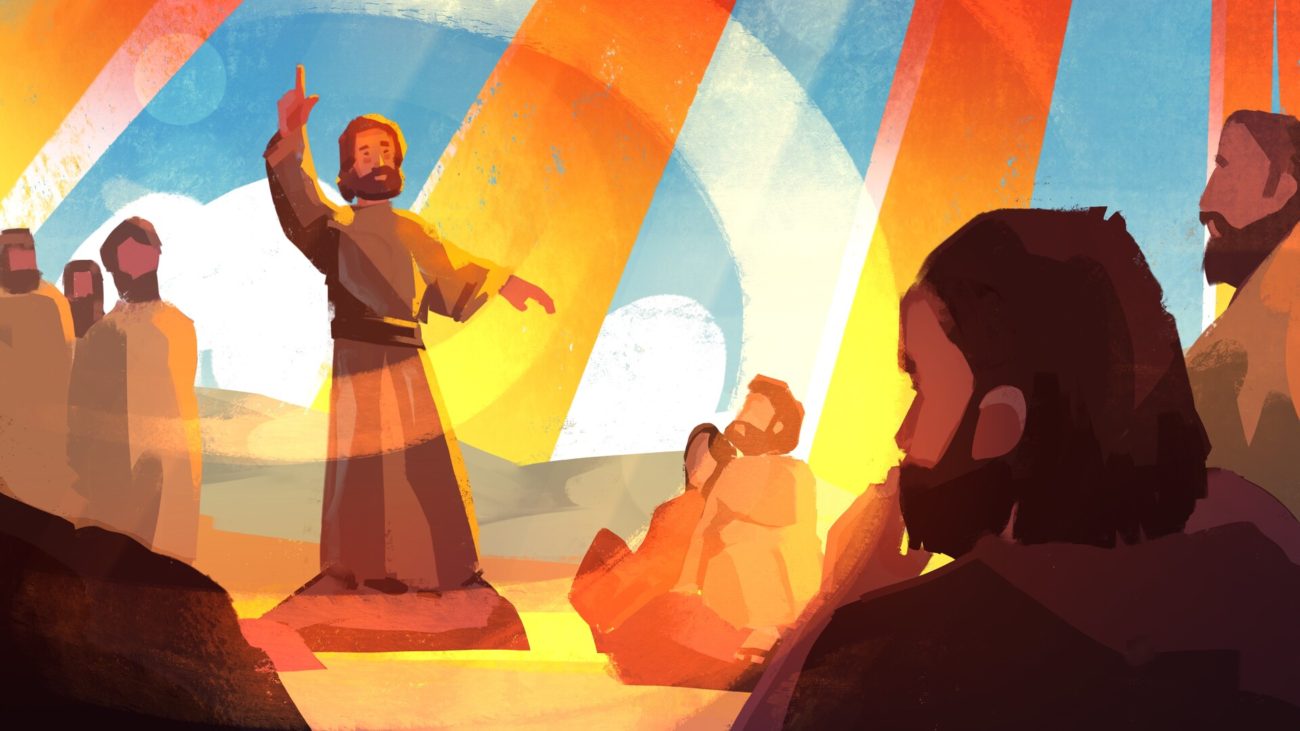
God instructs the Jewish people on the laws of holiness and the concept of being holy. The laws regarding parents, Shabbat, and idolatry are reiterated. There is also a commandment to care for those around you, especially the poor and the orphaned.
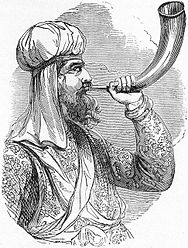
God sets the laws of the Kohanim. There is a lot of detail about the different holidays and observances. God explains Shabbat, Rosh Hashanah, Yom Kippur, Sukkot, Pesach, and Shavuot.
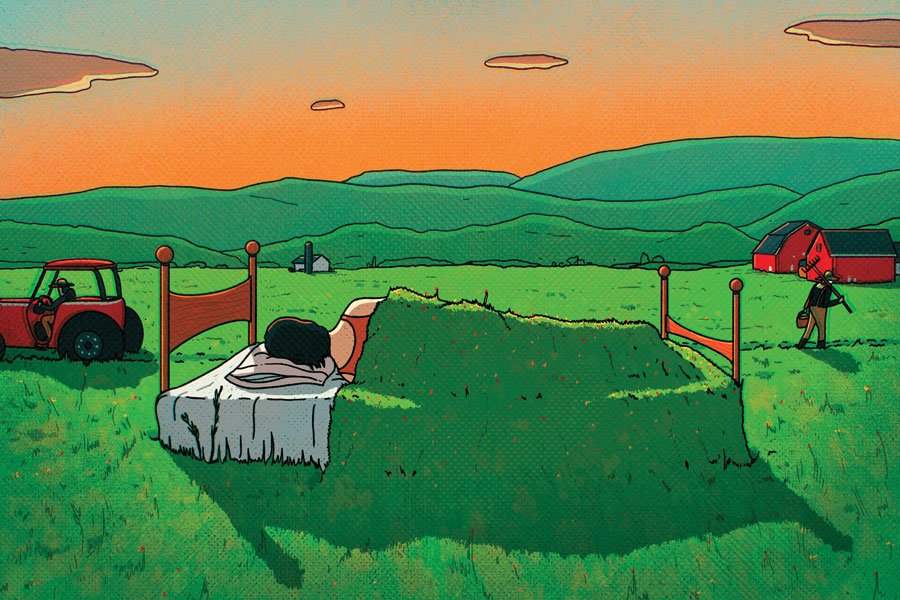
God sets the law of the Shmita year, the series of seven year cycles that allow farmers in Israel to work for 6 and require them to rest the land for the 7th to prevent overworking it. Every 50 years is a Jubilee in which all property is returned to original owners and all slaves are freed of any obligation.

God promises to reward and protect Israel if they follow His laws but severely punish and persecute them if they break it. He ends on a positive note by assuring Israel that they will always be His people and find forgiveness.

The Jews have been travelling in the desert for two years. Moses takes a census of all the people. The tribe of Levi is chosen to guard and maintain the Mishkan. The position of the different tribes around the Mishkan is set.
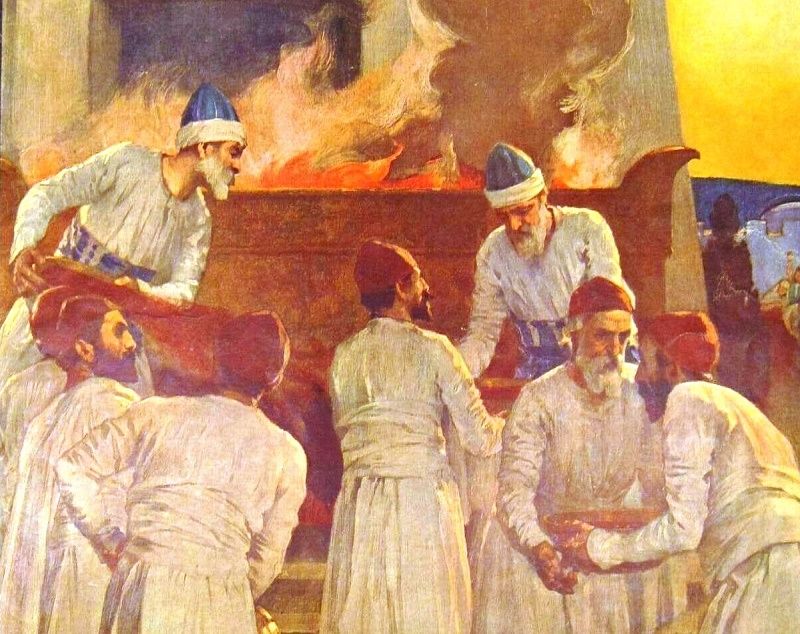
The Mishkan is to be disassembled and transported by the tribe of Levi when it is time for the Jews to move from one area to another. Certain unclean groups are forbidden from entering the Mishkan and surrounding camp until they are purified. Kohanim are given responsibility to deal with issues such as adultery. The Kohel Gadol is taught the priestly blessing.
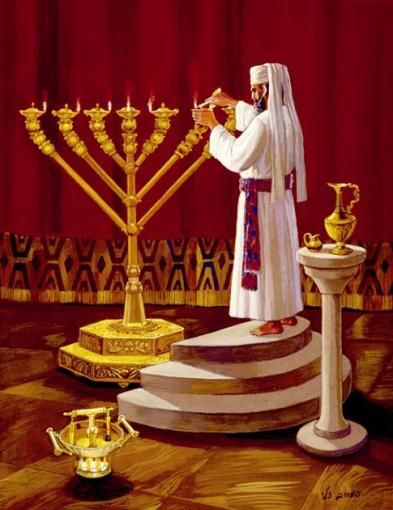
The Kohen Gadol is tasked with lighting and maintaining the Menorah. There is a second offering to accommodate people who were isolated during the first. Moses has his authority and knowledge questioned by the complaints and issues of the Jews as they travel with the Ark and Mishkan.
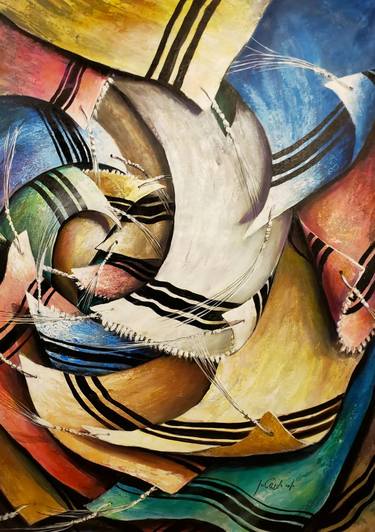
Moses sends 12 spies, one from each tribe, to look at the land of Canaan and assess it prior to the arrival of the Jews. In this incident, 10 of them fearmonger and tell the people of giants and monsters and dangers. Only Joshua and Caleb tell the Jews of the good news about the land’s abundance. The laws of tzitzit are commanded. The incident of the spies causes a rebellion and the Jews to be punished with wandering the desert for 40 years.
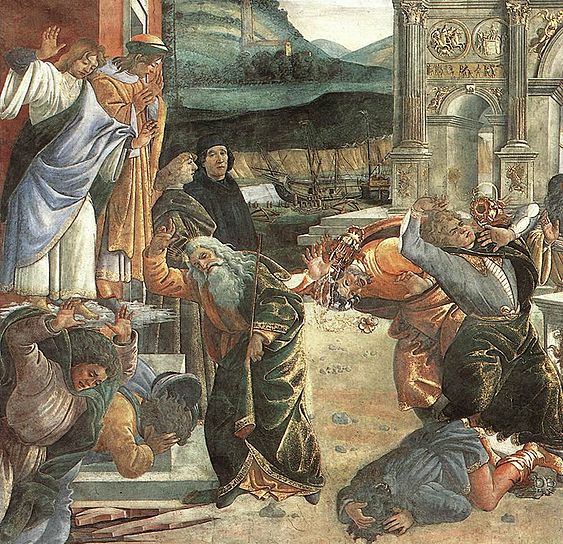
Korah, a prominent member of the tribe of Levi, leads a massive revolt against Moses. He and his followers are swallowed by the Earth and their death causes more complaints, leading to a plague spreading among the people. Aaron shows the power of God and ends the rebellion. The laws of Kohanim are repeated.
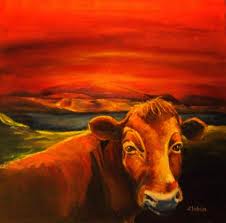
The laws of the sacred red heifer, whose ashes are used for spiritual purity, are described. Hearing complaints about a lack of clean water, Moses strikes a rock, instead of speaking to it as God instructed. Aaron dies and is buried. Moses is condemned to not being allowed to enter the land of Israel.
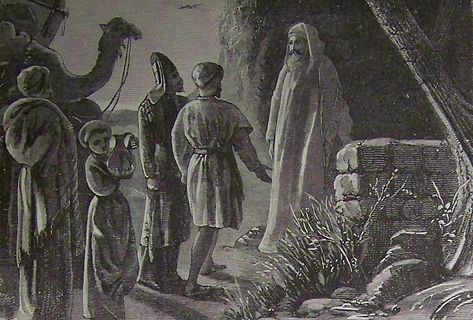
Balak, leader of the enemy nation Moab, sends couriers to the renown prophet Balaam and asks him to curse the Jews. While he refuses initially, the continued offers from the Moabite men encourage him. After beating his donkey and encountering an angel, God allows him to go with Balak on the condition that he will use God’s words, not his own. However, on multiple occasions, instead of cursing the Jews he blesses them, to the anger of Balak. Midianite women seduce the Israelite men, causing a plague to befall Israel.
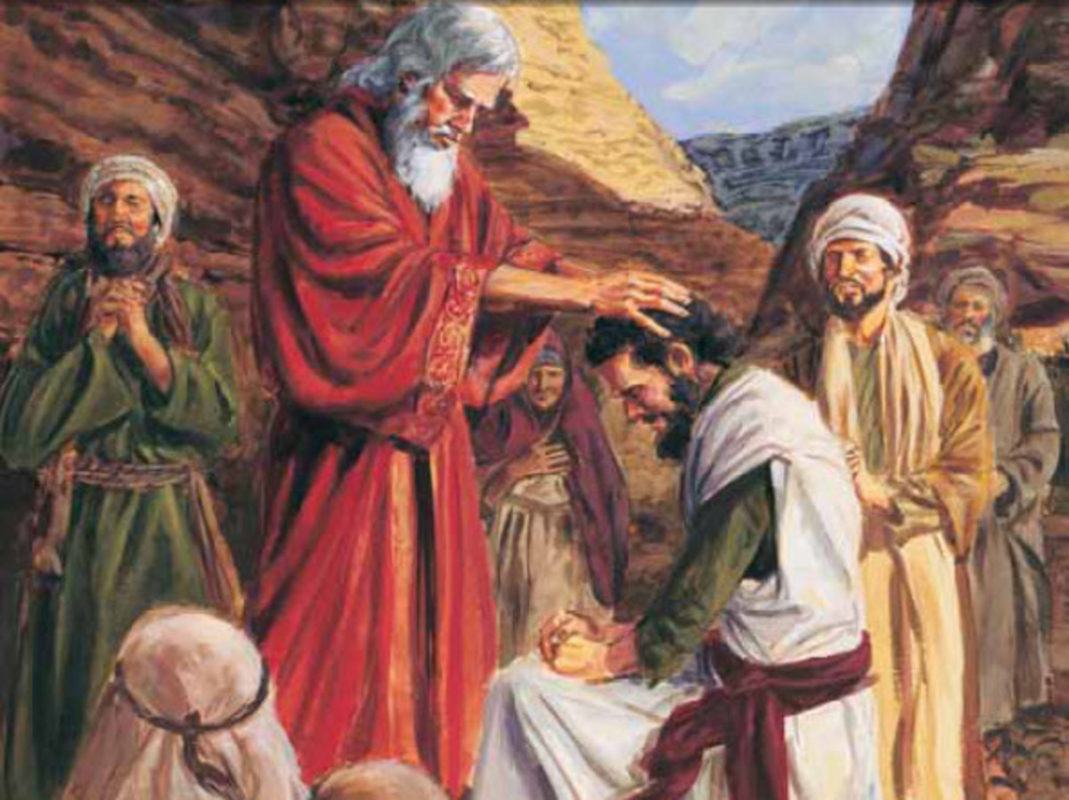
Pinhas, a righteous Kohen who impales a corrupt leader of one of the tribes, is rewarded with the Priesthood. Another census of the people is taken. After coming to Moses with their question, the daughters of a man without sons are given the inheritance that normally would have been forfeit. Moses appoints Joshua as his successor and blesses him.
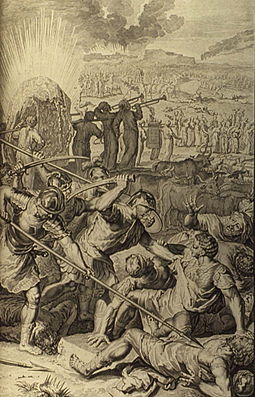
Moses discusses the importance and holiness of vows. Midian is defeated in battle because of God’s help and the spoils are divided amongst the tribes. Three tribes, Reuben, Gad, and half of Menasheh, ask to have their land on the opposite side of the Jordan. God agress on the condition they only can have the land after helping the Jews claim Canaan in battle.
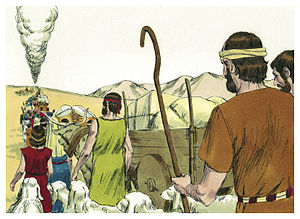
Moses restates the journeys from the 40 years in the desert starting in Egypt and ending where they are now, by the city of Jericho. The laws of cities of refuge are stated and the inheritance is repeated.

Moses finally tells the Jewish people that he is unable to go into Israel with him. The power is transitioned to Joshua and Moses assures the people that God will be with them just as has been. The Jewish people embark on the last leg of their journey.
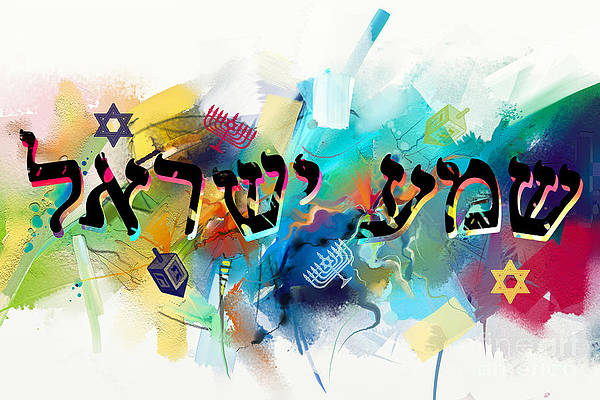
Moses restates the Ten Declarations and various laws. The Shema is recited and the people are blessed. Moses implores the people to follow all the laws of the Torah.
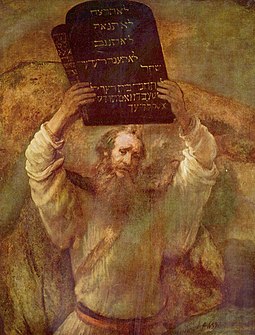
Moses assures the Jewish people that following God and His laws will result in success and reward. He repeats the incident of the golden calf and reminds them that they must seek God and remember Him.
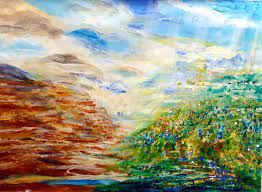
Moses issues both a blessing and curse. He promises that if the Jews follow in God’s ways and follow the Torah, they will receive numerous blessings and be successful. He warns that if the Jews fail to follow in God’s ways and do not follow the Torah, they will receive numerous curses and be unsuccessful in their endeavors. They are again warned of false prophets and idolatry.
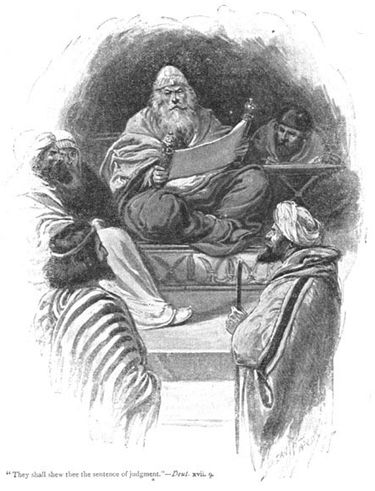
Moses asserts that Judges will be the leaders in the land of Canaan. However, he understands that the people may want a King like other nations and establishes the requirements of this scholar king. The Kohanim and Levites are to settle in the place that God decides on.
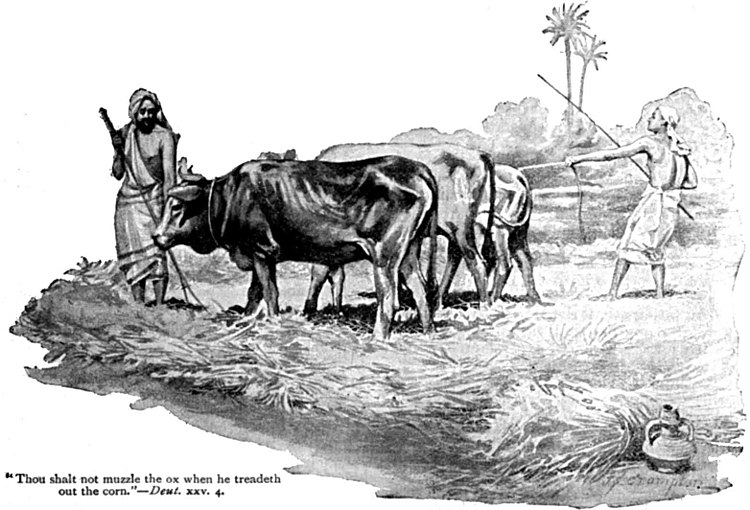
Many mundane laws are repeated and taught to the Jews. Divorce, usury, loans, and borrowing items are discussed. The Jews are warned against mistreating servants or workers and how they must care for their people.
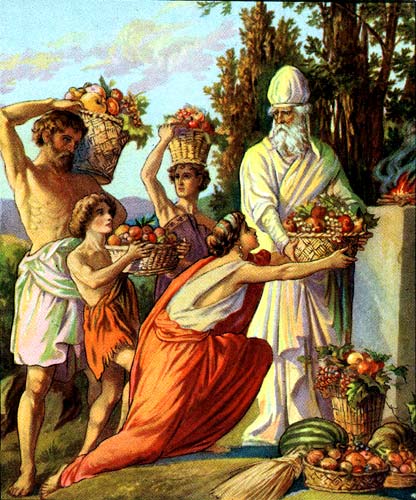
God instructs the Jewish people that new fruits, produce, and animals are to be brought to the place that God will reside and be offered. Their history is repeated and Moses issues a blessing that they will be seen as a holy people to God. The nation is tasked with writing and following the Torah once they cross the Jordan.
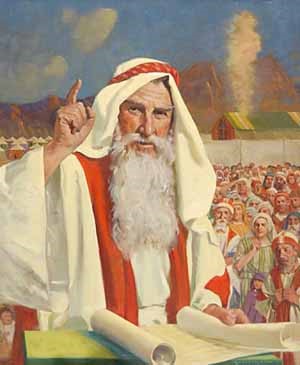
Moses reaffirms that the Jews must not just follow God and His ways when they feel like it, but must continue to for all generations. He prophesizes that the Jews will be in a cycle of obeying God and receiving reward then disobeying God and being punished for it.
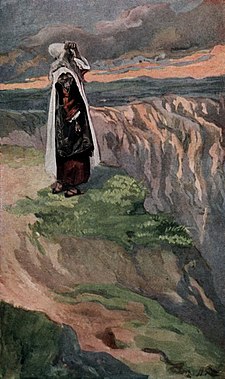
Moses finishes his travels on the banks of the Jordan. He writes another Torah scroll and entrusts it to the Kohanim and Levites. He writes a song as a testimony to the covenant between the Jews and God in the desert.
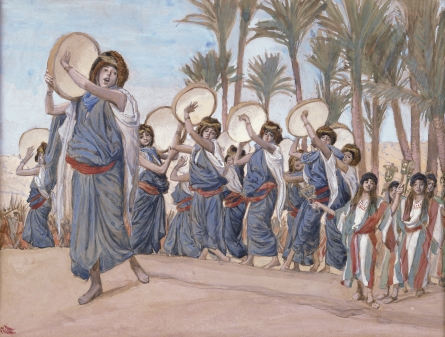
Moses sings the song to God and the people. He sings about God’s forgiveness despite the transgressions the Jews have made and will make. He is instructed to ascend Mount Nebo to look at the land of Israel before he dies.
Continue >
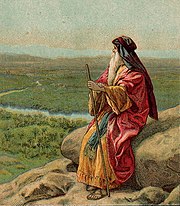
Moses blesses all the tribes, one by one. He then ascends the mountain where he looks at the land, speaks with God for the last time, and dies in an unknown place. After 30 days of mourning, Joshua assumes control of the nation.
Explore timeless wisdom from Sephardic rabbis across a range of topics. Select a category to dive into halakha, midrash, kashrut, philosophy, and more.
Stay connected to the Torah wherever you are. Explore our curated audio selections, from weekly parasha insights to Sephardic halakha and virtual tefillah. Tune into the tradition. Click on a video below or visit our YouTube channel @sephardic.
Visually interact and learn about our nearly 6000 year history.
An interactive tour through our rich heritage spanning from 900 B.C.E.
Learn about our numbers, languages and population.
The greatest minds, philosophers and authors of their time.
Everything you wanted to know about Sephardic customs.
Learn our traditions for brit to marriage and bereavement.
Food is the universal thing that has the power to bring people together.
Listen to the rich repertory of Sephardi music and prayers.
Connect to our calendar for the latest events and happenings.
Read real-time updates as the relates to the Sephardic world.
We welcome you to join us virtually for Shacharit and Arvit.
Make new friends while expanding your mind. Quarterly. Join now.
View the full list of every Jewish holiday and observance.
Browse through our recommended reading list of over 100 books.
Download our guides to help you plan for the Holidays.
We welcome all in need of prayer, healing or Kaddish.

Login to your account
Get notified about new articles